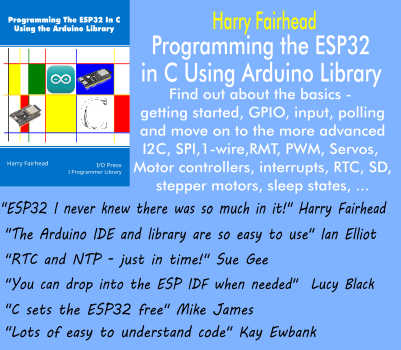| European Astro Pi Challenge |
| Written by Harry Fairhead |
| Sunday, 23 October 2016 |
|
The European Space Agency (ESA) is inviting teams of students who are 16 years old and younger to run science experiments run on the International Space Station (ISS).
This can be seen as a follow on to the 2014 opportunity offered to UK school pupils to devise experiments for the Raspberry Pi. On that occasion it was British Astronaut, Tim Peake who went aboard the ISS with two Raspberry Pis, whereas this time it is the turn of French Astronaut Thomas Pesquet. He too is keen to see what students can do with the Astro Pi units too. So ESA, together with the Raspberry Pi Foundation, have a competition for student, this time across the whole of Europe. The deadline for applications, in which teams need to explain why they want to take part and provide the idea for the experiment they want to do is 13 November, 2016 and selected teams will be announced on 25 November. Here's the details from the Raspberry Pi blog: Right now, 400km above the Earth aboard the International Space Station, are two very special pieces of hardware. Two Raspberry Pi computers are currently orbiting our planet, each equipped with a Sense HAT, a camera and a special aluminium flight case – and children all over Europe have the chance to program them. This is an amazing opportunity for students all over Europe. What better way to learn about computing, science, and space than actually being able to run your very own experiments on board the International Space Station? Imagine being able to say that you played a part in a real ESA mission, that programs you wrote were executed in orbit, and that results from your experiments were analysed by children all over the world!
And here's Thomas Pesquet with more information:
If you’re a teacher or a student from an ESA member country, this is how you can take part:
To help you learn all about the Astro Pi units and gain the skills to use a Raspberry Pi equipped with a Sense HAT, the Raspberry Pi Foundation has a variety of resources for the Astro Pi and Sense HAT. For further information, including important dates, see the Teacher’s Corner page on the ESA website. If you want to engage in more earthbound projects for the Raspberry Pi, remember that it is a really amazing IoT device. More InformationAnnouncing the first ever European Astro Pi Challenge Related ArticlesAstro Pi - What Can A Raspberry Pi Do In Space?
To be informed about new articles on I Programmer, sign up for our weekly newsletter, subscribe to the RSS feed and follow us on Twitter, Facebook, Google+ or Linkedin.
Comments
or email your comment to: comments@i-programmer.info
<ASIN:1871962463>
|
| Last Updated ( Sunday, 19 September 2021 ) |


